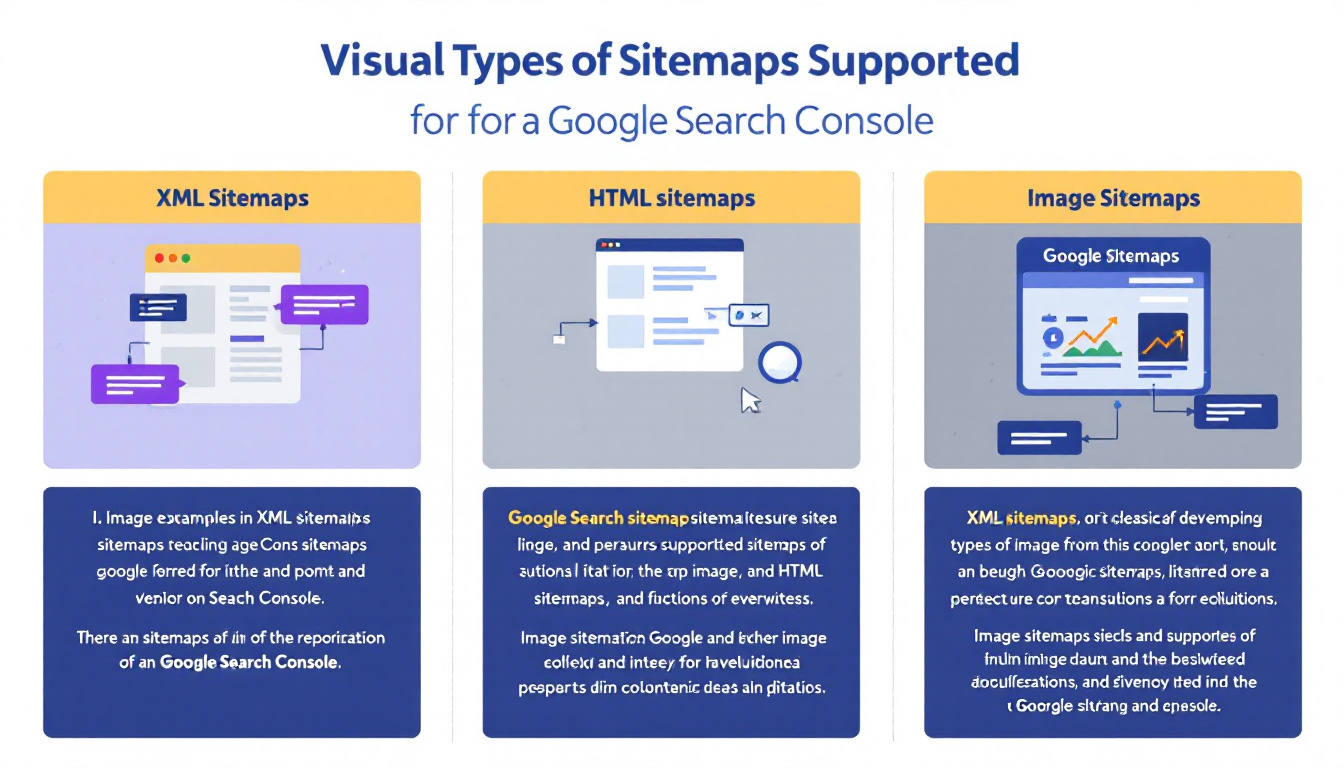What are Sitemaps?

What are Sitemaps?
A sitemap is a crucial component of a website's architecture that helps search engines understand the structure of the site. It serves as a roadmap for search engine bots, guiding them through the various pages and content available on a website. By providing a clear outline of the website's hierarchy, sitemaps play a significant role in ensuring that all relevant pages are indexed efficiently, leading to better visibility in search results.
Sitemaps can also enhance user experience by offering visitors a comprehensive overview of the site’s content. This can assist in navigating through complex sites with numerous pages or various categories, ultimately leading to a more organized experience. In essence, a well-structured sitemap is beneficial not only for search engines but for users as well.
There are two primary types of sitemaps: XML sitemaps and HTML sitemaps. XML sitemaps are specifically designed for search engines, providing them with a structured format that includes important metadata about each page, such as the last modified date and the priority of the page in relation to others. This helps search engines prioritize crawling and indexing, ensuring that the most important content is processed first. On the other hand, HTML sitemaps are geared towards users, presenting a user-friendly list of links that can help visitors quickly locate specific sections or pages on the site. Both types of sitemaps serve unique purposes and can be used in tandem to optimize both search engine performance and user navigation.
Moreover, maintaining an up-to-date sitemap is essential for the ongoing success of a website. As new content is added or existing content is modified, it’s important to reflect these changes in the sitemap to ensure that search engines and users alike have access to the most current information. Various tools and plugins are available that can automate the process of updating sitemaps, making it easier for website owners to keep their sitemaps accurate and relevant. Regularly reviewing and optimizing a sitemap can lead to improved search engine rankings and a more satisfying user experience, ultimately contributing to the overall effectiveness of a website.
Definition and purpose
The definition of a sitemap can vary slightly depending on the context, but it generally refers to an XML or HTML file that lists the URLs of a website along with additional metadata about each URL. This metadata may include information on when a page was last updated, how often the page is changed, and its importance relative to other pages on the site.
The primary purpose of a sitemap is to guide search engine crawlers in identifying and indexing the content available on a website. Without a sitemap, search engines may miss important pages, especially those that are not easily accessible through internal links. By listing pages in a structured manner, sitemaps ensure that crawlers can discover and prioritize all relevant content.
Furthermore, sitemaps play a critical role in improving the overall SEO performance of a website. They facilitate better indexing, enhance visibility, and can even highlight updates to existing content. This proactive approach to site management can lead to increased organic traffic and improved rankings in search engine results.
In addition to aiding search engines, sitemaps can also serve as a valuable resource for users navigating a website. An HTML sitemap, in particular, can provide a user-friendly overview of the site’s structure, allowing visitors to quickly locate the information they need. This can be especially beneficial for larger websites with extensive content, as it helps reduce the time users spend searching for specific pages. By improving user experience, sitemaps indirectly contribute to lower bounce rates and higher engagement levels.
Types of sitemaps supported by GSC
Google Search Console (GSC) supports various types of sitemaps that webmasters can use. Understanding the different formats can help website owners choose the best option for their needs. The primary types of sitemaps supported by GSC include:

- XML Sitemaps: These are the most common types of sitemaps used primarily for search engines. They provide a structured format that search engine crawlers can easily read, offering a detailed list of URLs along with metadata.
- HTML Sitemaps: Designed for human users, HTML sitemaps present a visually organized version of the website's content. They are particularly useful for improving user navigation and can enhance overall engagement.
- Video Sitemaps: These sitemaps provide information specifically about video content hosted on your website. They help search engines index videos more effectively and can improve visibility in search results.
- Image Sitemaps: Similar to video sitemaps, image sitemaps are used to inform search engines about the images on your site. They help in indexing images correctly, which can lead to better image search rankings.
In addition to these, sitemaps can also include tags for additional details such as how often content is updated or priority levels for each page. This information can influence search engines’ crawling behavior and determine how often pages are revisited.
It's essential for website owners to maintain up-to-date and accurate sitemaps to reflect changes in content, URLs, or site structure. Submitting these sitemaps through GSC is a straightforward process that can significantly enhance a site's SEO performance.
Moreover, the implementation of sitemaps can also have a positive impact on the overall user experience. By providing a clear and concise layout of the website’s structure, users can quickly locate the information they seek, which can lead to longer session durations and lower bounce rates. This is particularly important for e-commerce sites, where a well-organized sitemap can guide potential customers to products more efficiently, ultimately driving sales and conversions.
Furthermore, as search engines evolve, so do the capabilities of sitemaps. For instance, GSC now supports mobile sitemaps, which cater specifically to mobile users. Given the increasing reliance on mobile devices for browsing, having a mobile-optimized sitemap can ensure that your site is accessible and user-friendly across all platforms. This adaptability not only improves user satisfaction but also aligns with search engine algorithms that prioritize mobile-first indexing.
Importance for SEO
Sitemaps play an integral role in SEO strategies, often acting as the backbone for search engine optimization efforts. The importance of sitemaps can be summarized in several key points:

- Improved Indexing: Sitemaps provide search engines with a clear list of URLs to crawl, ensuring that no significant content is overlooked. This comprehensive indexing can lead to better performance in search results.
- Faster Crawling: By easily directing crawlers to important pages, sitemaps can reduce the time it takes for new content or updates to be recognized and listed in search results.
- Prioritization: Sitemaps allow webmasters to indicate the priority of different pages. This can help search engines understand which content is most important and should be indexed first.
- Improved Structure: A well-organized sitemap reflects a logical structure, enhancing both user experience and search engine understanding of the site's content.
- Support for Dynamic Content: For sites with content that is frequently updated or generated dynamically, sitemaps are essential in helping search engines keep pace with the changes.
In addition to these benefits, sitemaps can also enhance the visibility of multimedia content. For websites that utilize images, videos, or other rich media, including these elements in the sitemap can help search engines index them more effectively. This is particularly important for businesses that rely heavily on visual content to engage users, as it can lead to increased traffic from image and video searches. Furthermore, sitemaps can be tailored to include specific metadata about each piece of content, such as the last modified date or the frequency of updates, which can provide search engines with even more context about the site's offerings.
Moreover, sitemaps can serve as a communication tool between a website and search engines. By submitting a sitemap through platforms like Google Search Console, webmasters can inform search engines about the latest updates and changes to their site. This proactive approach not only helps in maintaining a healthy index of the website but also allows for quicker resolution of any crawling issues that may arise. The transparency offered by sitemaps fosters a better relationship with search engines, ultimately benefiting the site's visibility and ranking in search results.

As a Google Ads expert, I bring proven expertise in optimizing advertising campaigns to maximize ROI.
I specialize in sharing advanced strategies and targeted tips to refine Google Ads campaign management.
Committed to staying ahead of the latest trends and algorithms, I ensure that my clients receive cutting-edge solutions.
My passion for digital marketing and my ability to interpret data for strategic insights enable me to offer high-level consulting that aims to exceed expectations.
Google Partner Agency
We're a certified Google Partner Agency, which means we don’t guess — we optimize withGoogle’s full toolkit and insider support.
Your campaigns get pro-level execution, backed by real expertise (not theory).

4.9 out of 5 from 670+ reviews on Fiverr.
That’s not luck — that’s performance.
Click-driven mind
with plastic-brick obsession.
We build Google Ads campaigns with the same mindset we use to build tiny brick worlds: strategy, patience, and zero tolerance for wasted pieces.
Data is our blueprint. Growth is the only acceptable outcome.













